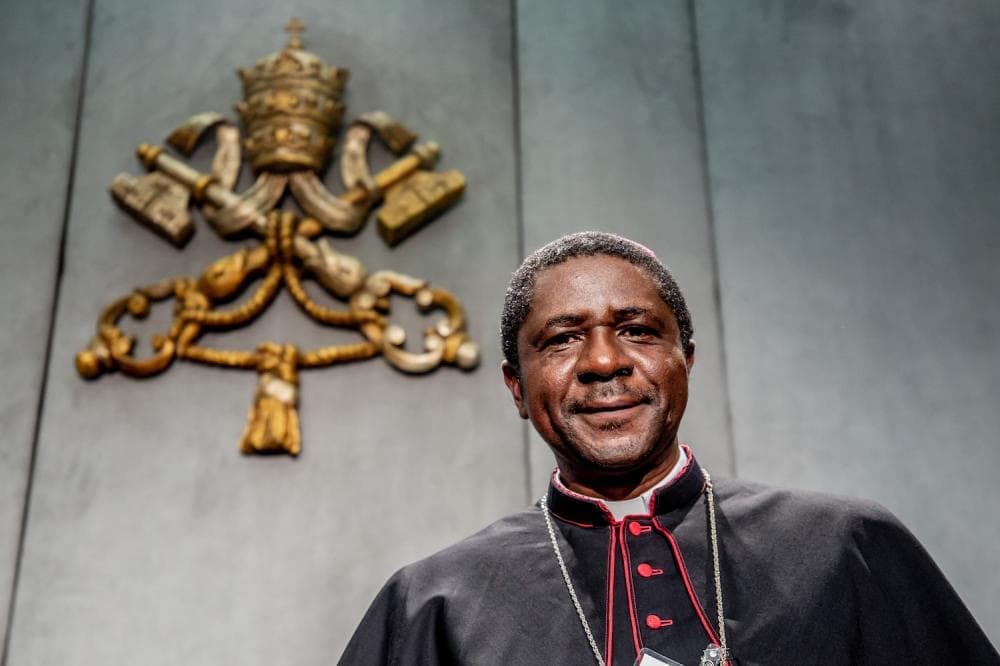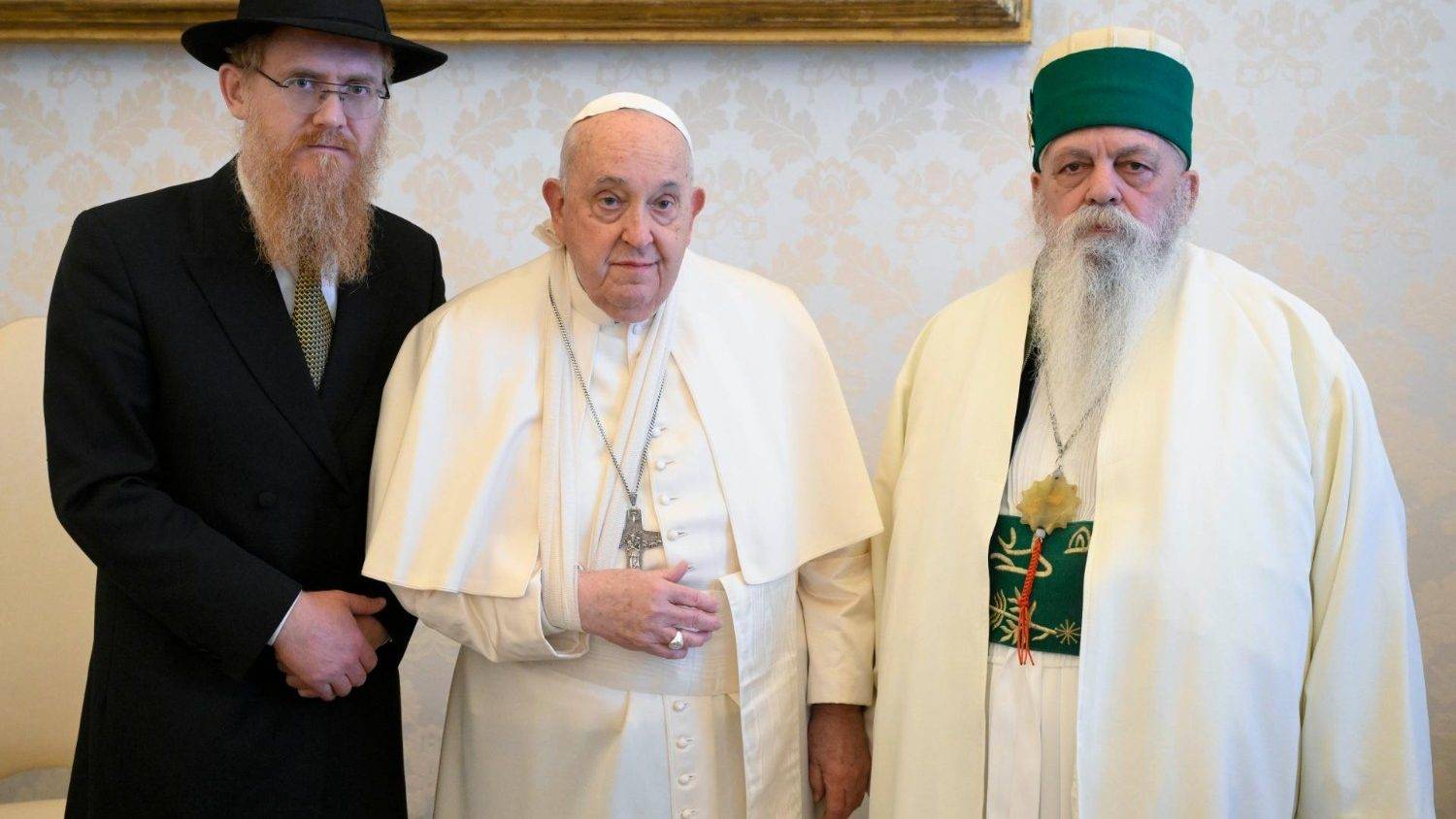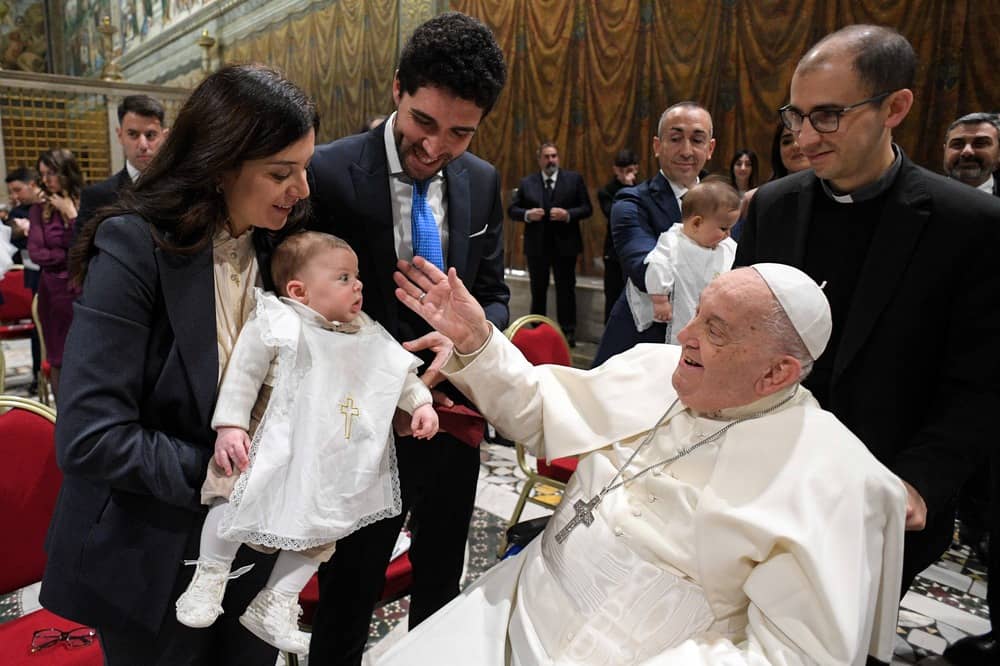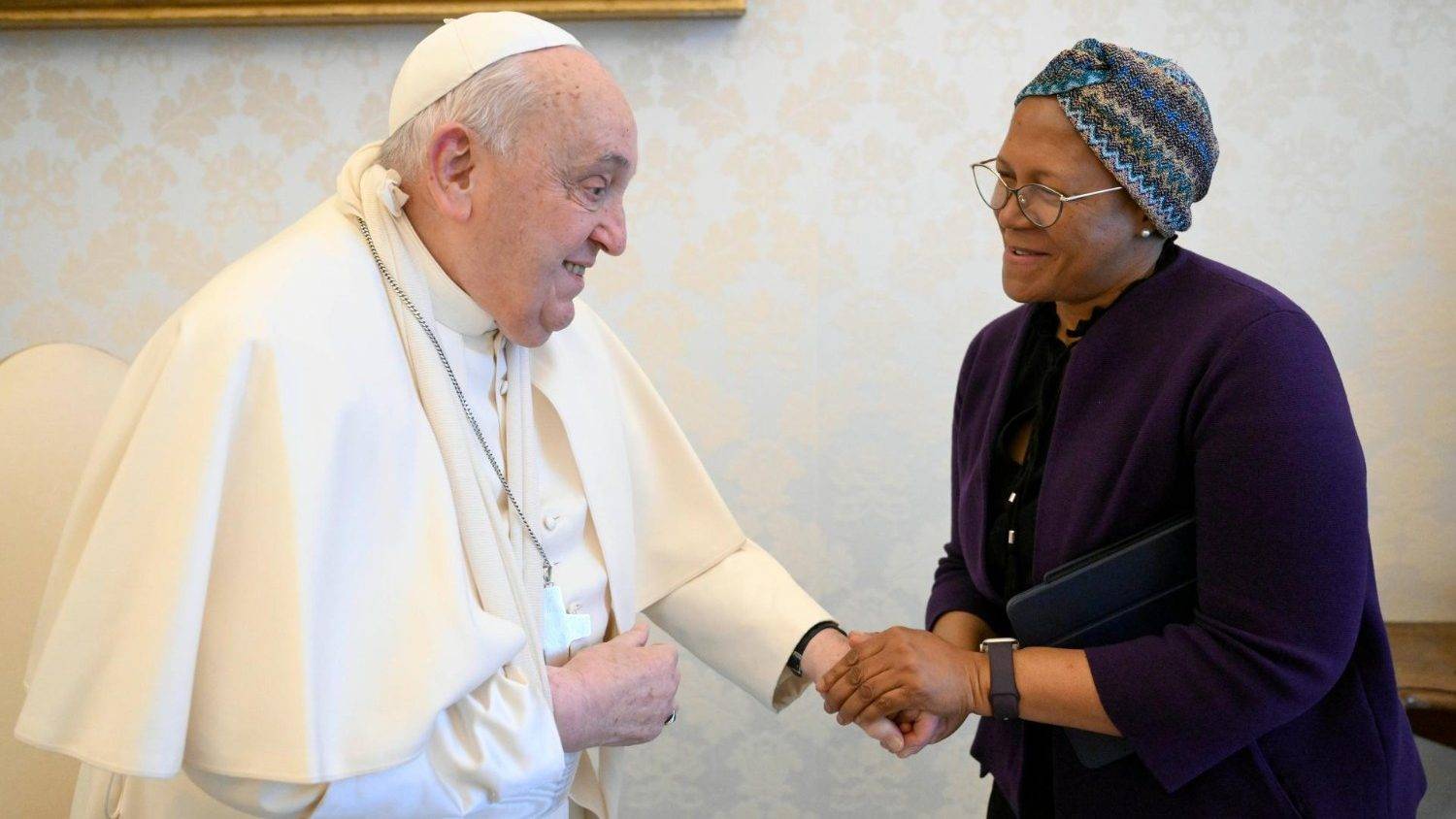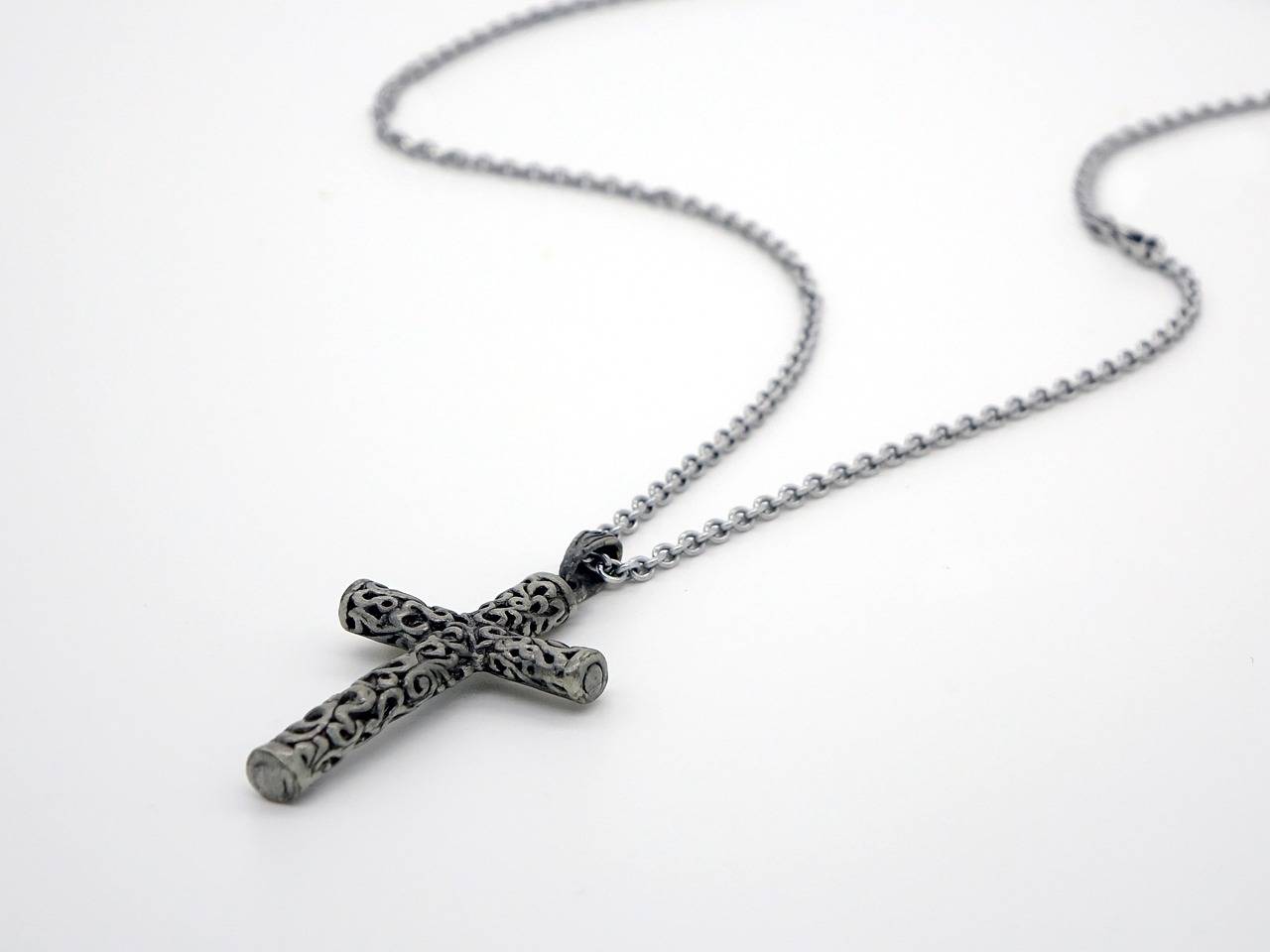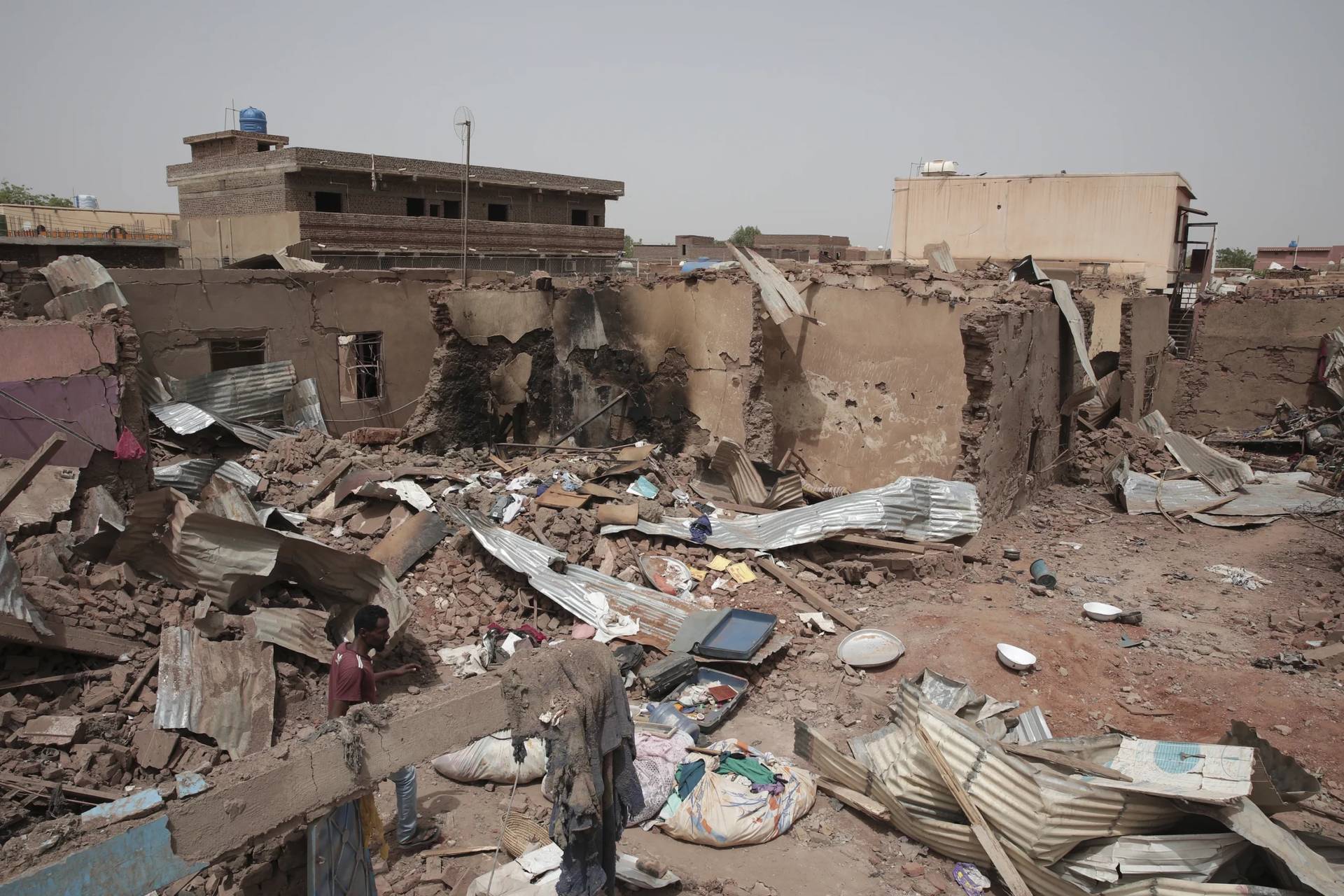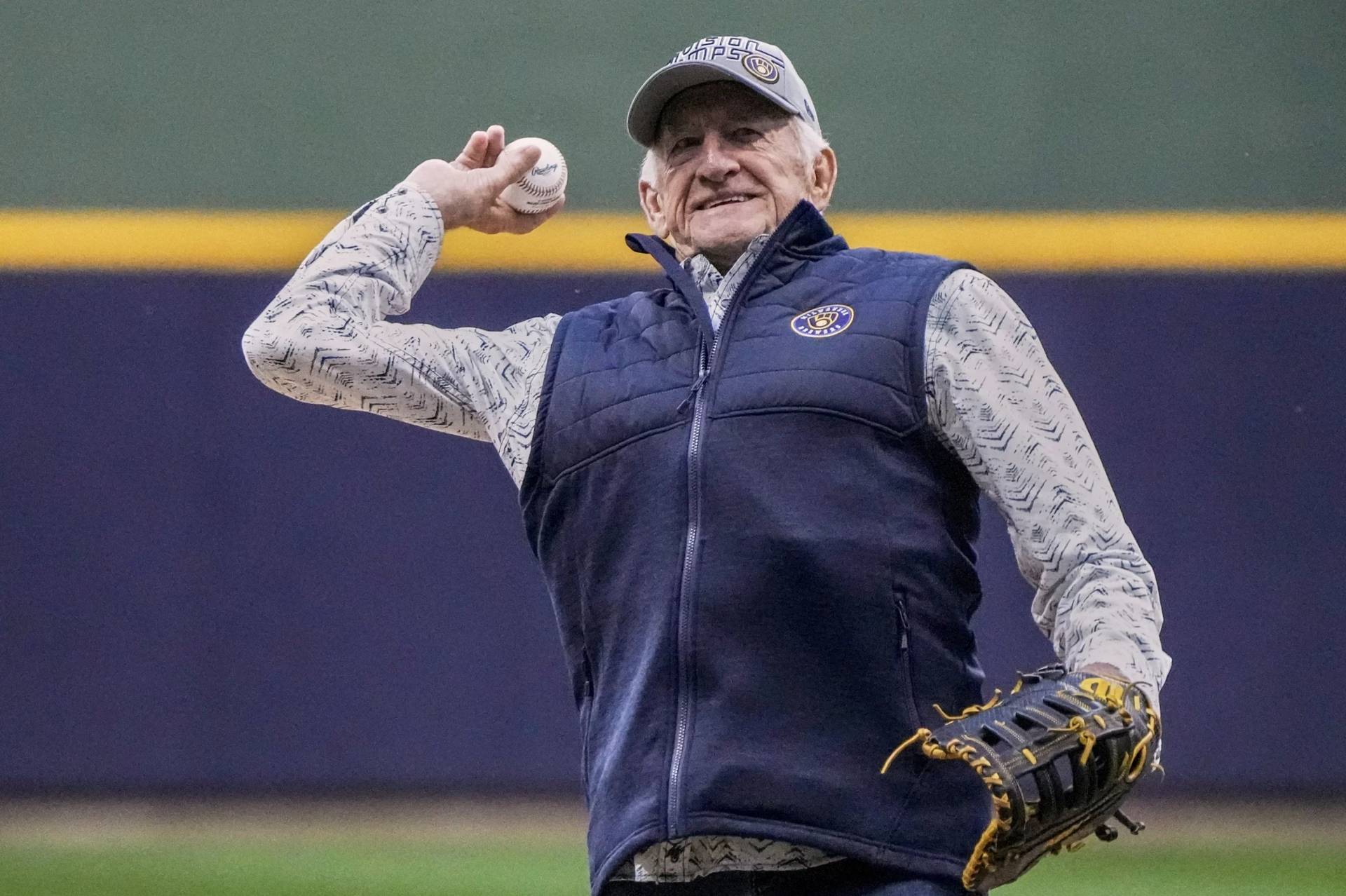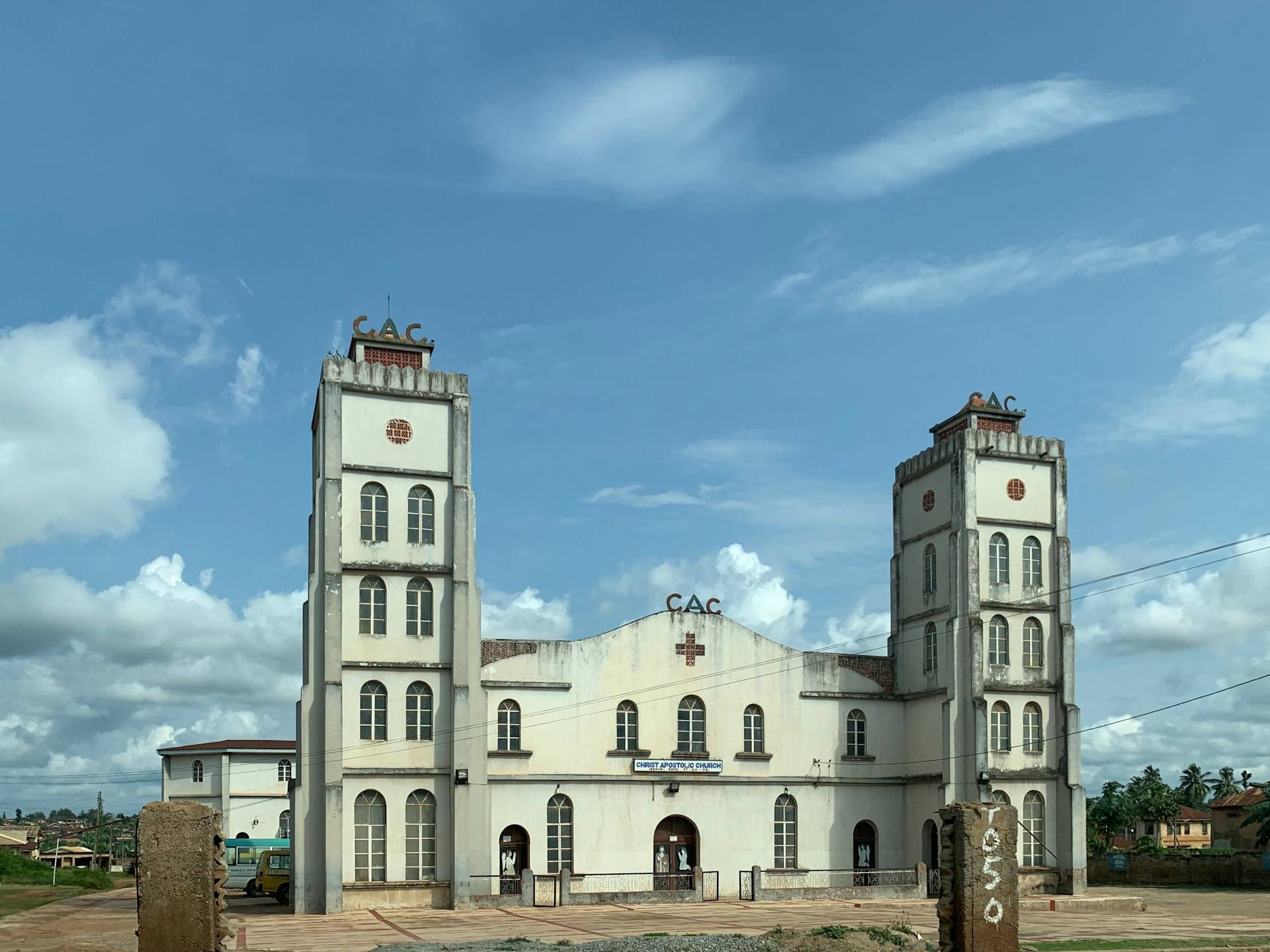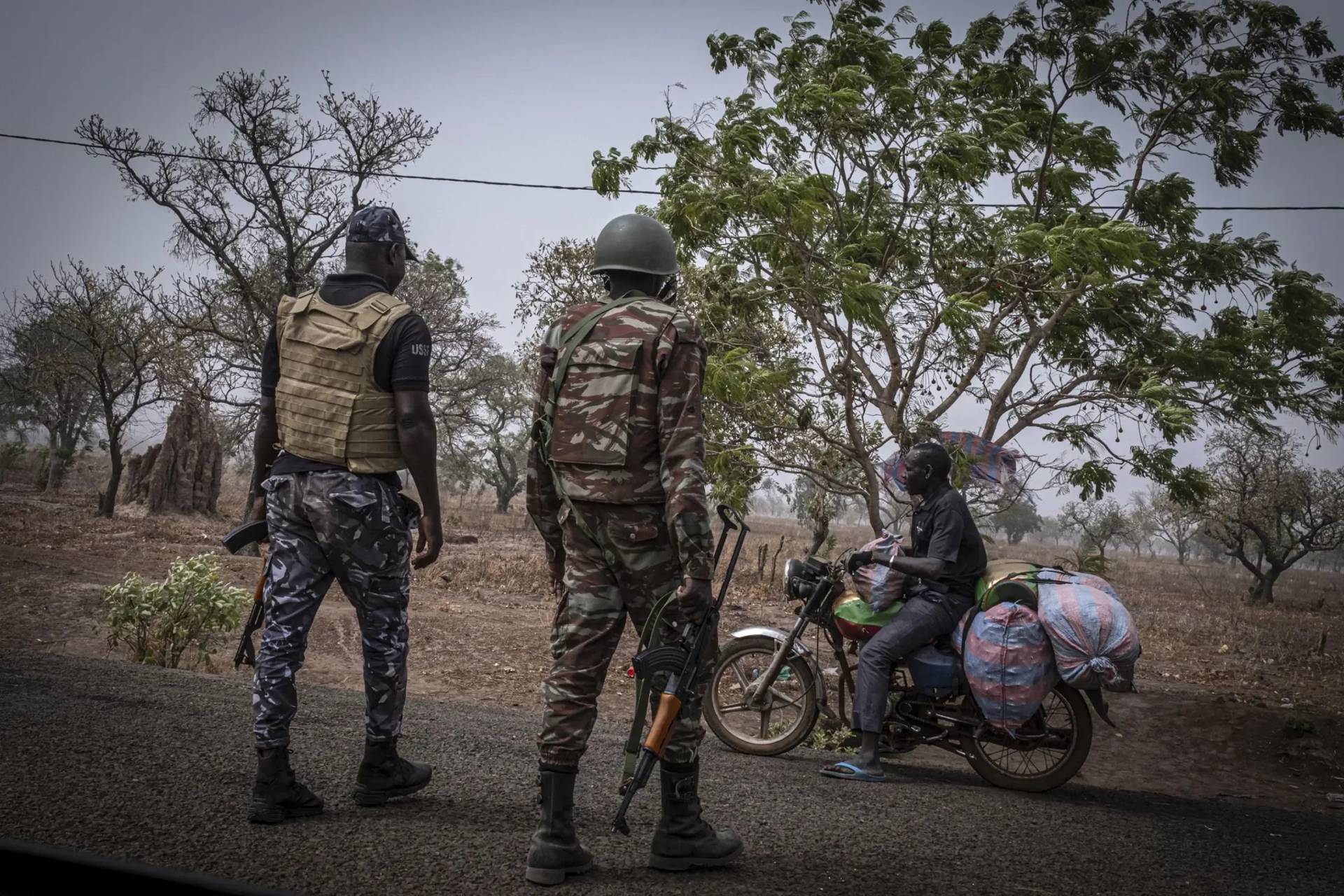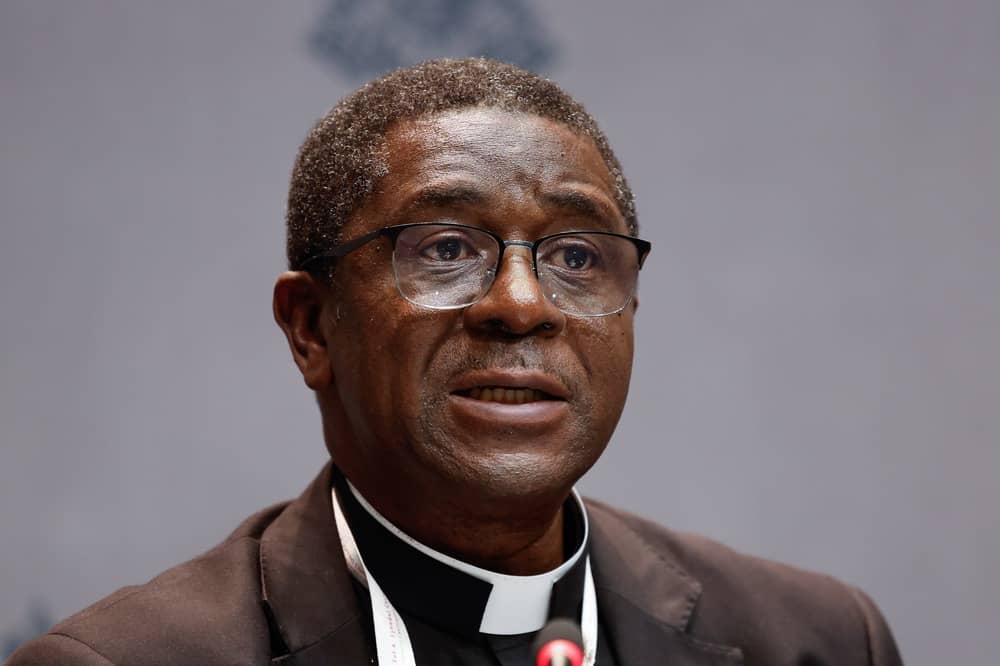BUEA, Cameroon – A leading African prelate has said that dwindling numbers in western Churches can be reversed if they adopt the small Christian communities approach practiced by the Church in Africa.
Archbishop Andrew Nkea Fuanya of Bamenda, in Cameroon’s North West region, was speaking in Buea on the sidelines of the 48th Annual Seminar of members of the National Episcopal Conference of Cameroon (NECC) organized under the theme “Living Synodality in our Local Church.”
Nkea, who was one of the 16 members of the Ordinary Council of the Synod and a leading African voice at the synod on synodality, told Crux that the African Church has continued to grow because of its reliance on small Christian communities.
“We have the family unit, we have the small Christian community, we have the mission station, we have the parish, we have the deanery, and then we have the diocese. And these various aspects, small units of evangelization, have caught fire in the whole of Africa,” Nkea said.
In the first of a two-part conversation, the cleric examines Africa’s participation and input in the Synod and Synodality. The second part will examine how Africa has been implementing and intends to live synodality in the Church.
Crux: You are one of the African delegates to the Synod on Synodality. How satisfied were you with the proceedings and outcomes of that Synod?
Nkea: I was very satisfied with the outcome of the Synod on Synodality. I must clarify a few things to you. The first thing is that after the Synod of 2018, I was elected one of the 16 members of the Ordinary Council of the Synod.
And therefore, we were charged by the Holy Father to prepare for the next Synod. And so from the conception of this topic on Synodality to the development of the themes and the preparation of the Synod, I’ve been involved every inch of the way. And I’m not just talking as a participant, I’m talking as one of the planners of the Synod, one of the executors of the Synod, that I am very satisfied with.
And maybe you could just remind us about some of the themes that were handled during that Synod.
During the Synod on Synodality, we looked at the concept of being Church. We have been reflecting on various issues, priesthood, religious life, the youth, but the Church has never reflected on itself. And so we thought that it was time for the Church to take stock of itself. And that is why we talked about Synodality as the new way of being Church.
The Church has existed for 2,000 years, and we are now going back to look at how the Church started, how the Church has evolved, where it is now. And the biggest question we asked ourselves is, what is the Holy Spirit saying to the Church today? Where does the Holy Spirit want the Church to go? And therefore, we had to take time to listen to the Holy Spirit. And this art of listening is one of the big aspects of Synodality, to listen to the Holy Spirit.
And we used the method of conversation in the Spirit. And that helped us a lot, even though the Synod, because after every three interventions of three minutes each, everything shut down. We all meditated for three minutes before continuing. And therefore, this puts us into good perspective to make the Synod a spiritual, more than a human reality.
And what did the Holy Spirit tell you when you meditated?
The Holy Spirit told us that our Church needs to have these three aspects: Communion, participation, and mission. Communion, from the point of view of the unity of the Church, everybody has to feel at home that we are one, beginning from the Holy Father down to the last Christian. Participation, every member has to put their hands on deck in the walk of evangelization.
And mission, the mission is not only limited to priests and religious, but we all have to be missionaries in the world of today. Missionaries of various dimensions, but we are all involved in missions.
Many women were advocating for the female diaconate during that Synod. That was shut down. Were you really listening?
It wasn’t shut down. We deliberated on it, especially during the first phase of the Synod. And during the second phase, the Holy Father removed that topic and handed it over to a group of experts, theologians to carry out the reflection. But during the second session, he [the pope] was very clear: let us not go back to ordination of women. While the experts are working, let us know that this is not the time. The time is not right in the Church of today for us to start talking about the ordination of women.
And why is the time not right?
The time is not right because we have not come yet to theological understanding. The reflection is going on and we cannot get up and act out of sentiment. We act out of theological conviction. We have said that the doctrine of the Church does not change, but theology develops. And therefore, understanding of theology can be developing, but the doctrine itself doesn’t change.
And therefore, something like ordination of women, you don’t do because of sentiment or because of popular pressure. You do because of theological conviction. I have not yet arrived at that certitude that we can touch that sacrament from the way Jesus did it and left it with us.
What might have been the input of African delegates during the synod?
I think this is one of the synods where we prepared very well. We had two preparatory meetings, both in Nairobi, for the first phase and for the second phase. And while in Rome, we still had some other meetings.
The most important contribution we brought to the synod was the way of evangelization in Africa, beginning from small Christian communities. We have the family unit, we have the small Christian community, we have the mission station, we have the parish, we have the deanery, and then we have the diocese. And these various aspects, small units of evangelization, has caught fire in the whole of Africa.
And in my diocese, I think that a lot of Pentecostal pastors are out of business. Because small Christian communities, what does it mean? It means the church in the neighborhood. Every small quarter has its own small Christian community where they meet, where they worship, where they pray.
These are our Christians who, because of distance or laziness or whatever, could not go to the main church. Now the church has come to their quarter. This is what we brought to the Synod. And we explained to the Synod that what is killing evangelization in Europe is individualism. They are losing the sense of community. And so if they can look for a way to go back to small Christian communities, it will help the spread of the Gospel in the West.
This is our strength in Africa. And because of small Christian communities, everybody knows everybody. So we don’t have anonymous churches. In the small Christian community, if you don’t see somebody on Sunday, you’re like, oh, I didn’t see my neighbor. And when you are going back, you stop. Neighbor, what happened? I didn’t see you in church.
The second thing we brought to the synod was our contribution with regards to marriage. In Africa, as the Church teaches us, marriage is between a man and a woman. And we say that marriage, a family, and the family is the domestic church.
When we started the reflection and the discernment on synodality, we were talking about the Church as a tent. Enlarge the tent so that all can enter.
But when it came to Africa, we rejected the concept of a tent. And we said we cannot call the Church a tent in Africa because the tent is only meant for refugees. That’s why when we see tents in Africa, it only comes from the United Nations during wars and during famine and internal displacement.
We said, no, in Africa, and going back to Ecclesia in Africa, the Church is the family of God. And we brought this up to the synod. And we pushed this argument and practically everybody saw what we’re talking about. And it was adopted by the Church as a family, not as a tent. And in this concept of family and of marriage specifically, we also brought out the aspect of Genesis. God made them male and female.
And against the popular pressure of homosexuality, LGBTQ, and that’s why in the first and the second document, the word LGBTQ does not appear, because we from Africa fought and removed that word.
Yes. I remember you had a very strong reaction when the Pope said you could bless same sex relationships…
We said, no, in Africa, we will not do it.
And would that not be interpreted as insubordination to the Holy See?
No, it’s not a matter of disrespecting the Holy See. We are faithful to the teaching of the Church. And my obedience to the Holy Father is not shaken one bit. Remember that God gave us 10 commandments. The Holy Father cannot give me a machete to go and kill, and I’ll kill because he’s the Holy Father.
So we judge this as something which is not only against African culture, it is also against the teaching of the Bible and the teaching of the magisterium. And we said in conscience, we cannot do it. And this is one of the strong points that will really influence the synod.
I remember that there was a proposal to make various Episcopal conferences doctrinally autonomous to some extent. Africa pushed back on that. Why were you afraid of autonomy?
It’s not only Africa that was pushed back. I can give you names of American bishops, who were with us in this struggle, names of some European bishops and bishops of Oceania who worked very strongly with us. We said the Catholic Church’s identity is its universality in faith and in morals, in doctrine. Once you start giving autonomy of doctrine to Episcopal conferences, the Catholic Church ceases to be Catholic because it’s no longer universal. What makes us universal is the Creed: I believe in one Holy Catholic and Apostolic Church.
If you say that we should give autonomy of doctrine, what does that mean? It means that in India for instance, they may decide to say that our Lady did not go up to heaven body and soul. And they’ll hold it in their own church. And we’ll come here and say, no, Jesus is only temporarily present in the Blessed Sacrament. And we’ll hold that here. You destroy the unity of the Church. We want as much autonomy as possible, but not on matters of morals, matters of faith, and matters of doctrine. Those are universal.
You are a canon lawyer, and there was also this other proposal that the Canon Law be revised in a way as to give even lay Christians deliberative power. You pushed back saying it would lead to chaos. Doesn’t that contradict the very idea of a Church walking together-of synodality so to speak?
No, we didn’t argue about giving deliberative power to the laity. What we argued against was the democratization of the Church. The democratization of the Church would bring a lot of chaos. And we want to go slowly. First of all, I am a theologian. My catechist is not. My CWA President is not. And therefore, our understanding of Church issues is different. And therefore, if you want to give deliberative power in matters of governance, we have no problem.
In my parish pastoral council, we vote. And what we finally said in the document, when you read it well, it says that in these pastoral councils, we give the people the power to deliberate and to vote. The bishop takes the final decision.
But the bishop can only go against a popular vote if it touches on matters of faith and doctrine. There are some minor issues which touch on the life of the people. And they can take the decisions.
But if it is a matter of faith, doctrine, teaching of the Church, the bishop has to come in and say, no, no, that is not good, it doesn’t line up with the teaching of the universal Church. So we are against the democratization of the Church for one man, one vote on all matters. It cannot work.
So the Church wants democracy everywhere else except in the Church?
We push for democracy as a form of governance for the Church.
So how do you convince maybe politicians, for example, to accept the concept of democracy when the Church itself doesn’t espouse democracy?
If you want my personal opinion, I will not go for democracy.
Why is that?
Because democracy is the government of the people, for the people, by the people. That sounds very good, theoretically. And the West has imposed this on us to think that this is the best way of governance. When I was growing up, when our local traditional rulers still had the powers that they had in those days, they were benevolent dictators. And they had such order and discipline in their villages.
They had such developmental projects going on. They had all these tribal organizations and structures that helped to keep either discipline in the village, community work, and all those things. We can develop our own form of government, even at the national level, which we don’t necessarily need to take from the West.
When you go to the village to campaign for elections, they come and give people sardine and bread and a bottle of drink each. They are not voting for a manifesto. They are voting for the sardine and bread they ate in the night. This simply means that they have not understood the concept of democracy. You are getting a man to vote for someone in their village as parliamentarian whom they’ll see only in the next election, and they’ll still vote for him.
How is that democracy helping the people? If the money you were paying that parliamentarian was given to the chief of that village who understood his people, and they sat down in the traditional council, I mean, if things were working well, you know the development that will come to that village or to that area.
Part two of the interview is here.
